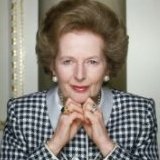True Agrees Takeover Deal With Hutchison Telecom
-
Recently Browsing 0 members
- No registered users viewing this page.
Announcements
-
Topics
-
-
Popular Contributors
-
-
Latest posts...
-
18
Entertainment Thailand Eyes Global Stage with Tomorrowland Investment
Looks great loads of teenagers standing still with their phones up -
324
‘Putin clearly won’: Pundits say meeting was ‘bad for Americans’
Factually wrong - Churchill knew and was warning for years about trusting Hitler - Here’s a timeline of Churchill’s key warnings about Hitler before 1940, showing how he repeatedly insisted the Nazi regime could not be trusted: 1933 – Hitler Comes to Power Churchill, though out of government, warns privately and in writing that Hitler’s rise and Nazi ideology must be taken seriously. Quote (Evening Standard, 1935): “Germany is arming furiously and secretly. Herr Hitler declares his peaceful intentions, but behind him marches the Prussian military spirit with its record of violence and treachery.” 1934–1935 – Early Nazi Militarization Churchill uses newspaper articles and speeches to argue that Germany is rearming in violation of Versailles. He warns Britain must not let its guard down, as Hitler’s promises of peace cannot be relied upon. November 12, 1936 – House of Commons Speech Churchill directly challenges the government’s complacency: “Germany is arming fast, and no one is going to stop her. Herr Hitler’s intentions are no longer a mystery… To suppose that the Nazi dictatorship, with its hatreds and ambitions, will remain content within its present boundaries is a dangerous delusion.” March 1938 – Anschluss (Austria) After Hitler annexes Austria, Churchill criticizes the inaction of Britain and France: “The gravity of the events which have occurred cannot be exaggerated. Herr Hitler’s counsels of violence and treachery are moving forward with ever-greater momentum… Do not suppose this is the end. This is only the beginning of the reckoning.” September 1938 – Czechoslovakia Crisis (Pre-Munich) As Chamberlain prepares to negotiate with Hitler, Churchill warns: “Czechoslovakia is to be destroyed. Do not delude yourselves. Do not suppose that this is the end. Hitler will not stop. He cannot stop. He does not mean to stop.” October 5, 1938 – After Munich Agreement Chamberlain returns claiming “peace for our time.” Churchill responds in Parliament: “We have suffered a total and unmitigated defeat. And do not suppose that this is the end. This is only the beginning of the reckoning, the first sip, the first foretaste of a bitter cup…” 1939 – After Hitler Seizes the Rest of Czechoslovakia (March) Churchill seizes on Hitler’s betrayal of the Munich promises: “All is over. Silent, mournful, abandoned, broken, Czechoslovakia recedes into the darkness. She has suffered in every respect by her association with France and England. … We are in the presence of a disaster of the first magnitude.” September 1939 – War Begins Britain declares war after Hitler invades Poland. Churchill is brought back into government as First Lord of the Admiralty, vindicated after years of warning that Hitler could never be trusted. Summary From 1933 onward, Churchill consistently warned that Hitler’s word was worthless, that Nazi Germany was rearming at breakneck speed, and that appeasement would only embolden aggression. His phrases — “dangerous delusion,” “beginning of the reckoning,” “total and unmitigated defeat” — captured his lonely but accurate stance in the wilderness years. -
2
Accident Laotian Man Survives Gruesome Bike Crash
Don't hold your breath, readers. -
19
Report Thaksin Gifts 15 Homes to Si Sa Ket: A 3.5 Million Baht Gesture
Top shelf P'Thaksin, Top shelf. You are a good man. -
60
Ukraine Putin Agrees to Strong Security Promises for Ukraine: US Envoy
Eastwards expansion did not happen. (Well, technically I suppose it did: North Macedonia and Montenegro have joined NATO since 2010, but I hardly think their membership constitutes a major threat to Russia. Do you? In any event, their application to join NATO can be seen as a by-product of Russia's invasion of Ukraine, as can Finland's membership). Back on topic: Ukraine abandoned its' goal of obtaining NATO membership in 2010, so this idea that Russia's invasion can be justified on the basis that Ukraine presents a threat to Russia can be seen for what it is: Complete nonsense. -
3
SpaceX Pays Next To Nothing In Federal Taxes
Is SpaceX receving money from the feds to send rockets into space?
-
-
Popular in The Pub












Recommended Posts
Create an account or sign in to comment
You need to be a member in order to leave a comment
Create an account
Sign up for a new account in our community. It's easy!
Register a new accountSign in
Already have an account? Sign in here.
Sign In Now